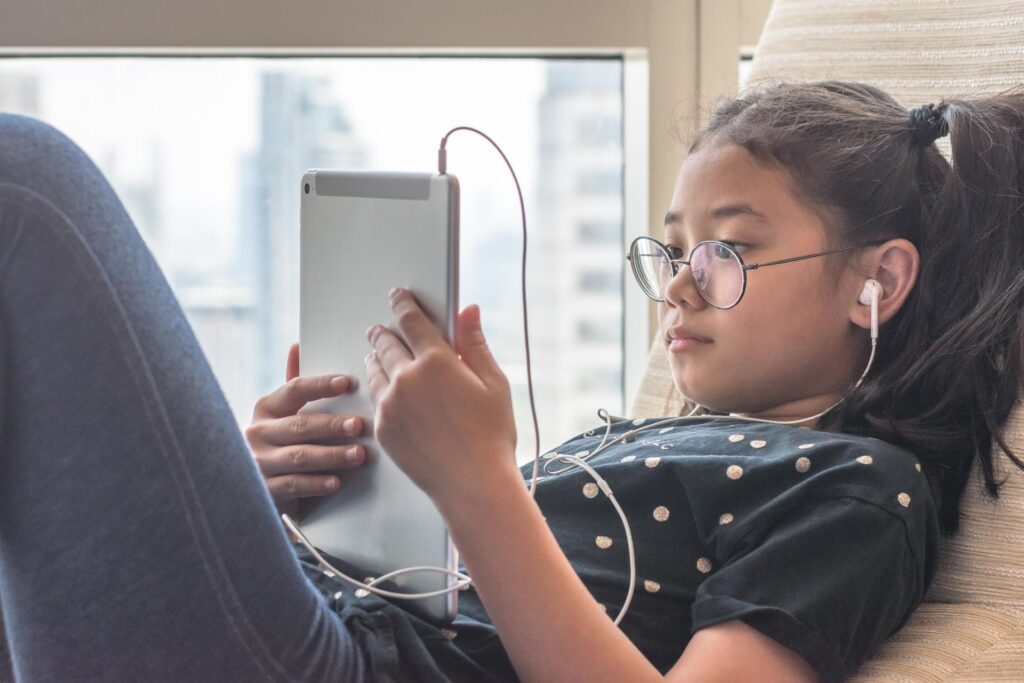ADHD is often accompanied by other mental health challenges. A common one associated with children is anxiety. While anxiety is a general term that is often used to describe an umbrella of disorders and experiences, it can be very debilitating for those that do experience it. Considering that ADHD is already a multifaceted executive functioning disorder, anxiety furthermore decreases a person’s functioning. Anxiety often inhibits the ability to utilize executive functioning skills, so imagine a double limitation on your child’s executive functioning skills that are needed on a daily basis. To gather a clearer understanding of ADHD please visit one of our previous blogs.
Let’s talk ADHD and social anxiety! Earlier it was pointed out that ADHD is an executive functioning disorder, which in relation to social skills inhibits an individual from developing and reaching age-related milestones. This makes individuals with ADHD more vulnerable to develop social anxiety disorder. Most children with ADHD struggle with social skills and the main reason is often related to their level of distraction that inhibits them from naturally picking up on the appropriate cues and skills learned at each developmental milestone. This doesn’t mean that they do not understand social cues and the basis of appropriate interactions but simply that they have not learned how to apply them.
So, what exactly is social anxiety? Social anxiety disorder (SAD) is defined as a distinct fear in one or more social settings where there is exposure to the potential scrutinization of others. These worries are often related to being rejected, humiliated, or judged by peers that are persistent and last longer than 6 months. These symptoms must impact daily life activities, including relationships and personal interests. Social anxiety is more commonly identified in teenagers and adults at a whopping 12% of the population. However, children are often overlooked and misdiagnosed and viewed as shy versus being adequately diagnosed and understanding the level of difficulties they are experiencing in social settings. Some additional symptoms may include worrying about events weeks in advance, avoiding places that involve increased social interactions, feeling self-conscious when people are around, embarrassed to eat in front of others, having somatic symptoms in social environments. Due to the nature of ADHD, treating social anxiety can be difficult due to the accompanying social skill deficits. However, some tips to cope with social anxiety include:
- Acknowledging the social anxiety and naming what makes a child nervous in that social setting. If the child is not able to name these difficulties, especially depending on their age, you can share your observations (of their behaviors that you notice in social settings) not necessarily your opinions.
- Try working on one goal at a time instead of choosing several goals to work on. This will reduce the overwhelming feeling that the child may experience. It would be beneficial if this goal is achievable given the level of anxiety the child may experience. Engaging in goals that are too difficult initially may discourage the child from taking a step forward or feeling like they are capable of achieving the goal.
- Choose a small goal that is achievable to build confidence (ex: speaking to X amount of people per week) to increase comfort in social settings. The main purpose of starting with small goals is the need to feel accomplished and capable so the child will feel motivated and successful.
- Encourage the child to engage with a peer outside of required settings several times per week.
- Lastly, talk to your therapist or provider for more individualized goals to support your child that has diagnosed or suspected social anxiety disorder.
In turn, children with ADHD are more susceptible to having an anxiety disorder and of those anxiety disorders SAD is often misdiagnosed and should be considered if you notice some of the symptoms described above. As children are in the developmental periods where they value and thrive off of social connections, it is imperative as a parent to support them and understand how significant their difficulties are and while they may seem like they do not want to engage, most children are desiring connections with peers.
For support with ADHD and social anxiety disorder, Dandelion is there for you and your family!
References
- American Psychiatric Association. (2016). Social anxiety disorder (Social phobia). In Desk reference to the diagnostic criteria from DSM-5 (p. 118). American Psychiatric Publishing.
- National Institute of Mental Health. (2017, November). Social Anxiety Disorder. Retrieved November 05, 2020, from https://www.nimh.nih.gov/health/statistics/social-anxiety-disorder.shtml
Anxiety and Depression Association of America. (n.d.). Facts & Statistics. Retrieved November 05, 2020, from https://adaa.org/about-adaa/press-room/facts-statistics

